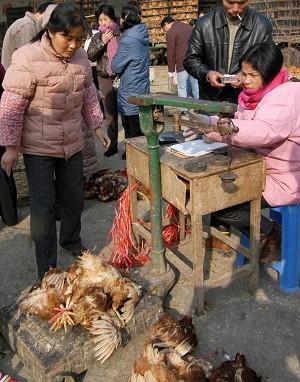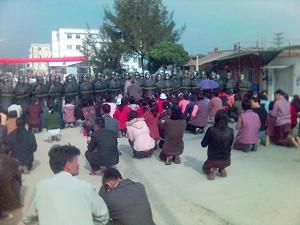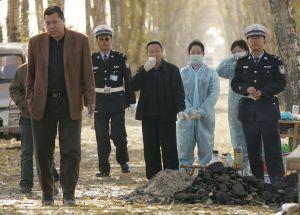BEIJING — China’s foreign minister left on Wednesday on a tour of six African nations, underscoring Beijing’s accelerating economic and diplomatic presence in a region whose energy and natural resources it covets.
Li Zhaoxing will also seek to shore up ties with countries that have in past had relations with its diplomatic rival, Taiwan, during his Jan. 11-19 tour that will take him to Cape Verde, Senegal, Mali, Liberia, Nigeria and Libya.
China already gets a third of its oil from Africa, and among his stops are Nigeria and Libya, energy-rich nations that China has been eyeing as it seeks new sources of imports to fuel its fast-growing economy.
“Right now Africa is very often mentioned by China’s oil companies as an important place,” said Kang Wu, a research fellow at the East-West Center in Hawaii.
“Foreign majors for political reasons are not highly concentrated, so it’s opening up opportunities for countries like India and China.”
China’s top offshore oil producer, CNOOC Ltd., agreed last week to pay $2.3 billion for a stake in a Nigerian oil and gas field, its largest-ever overseas acquisition.
Foreign Ministry spokesman Kong Quan said in Nigeria Li would sign a memorandum of understanding that would pave the way for further economic cooperation, and shrugged off concerns about Nigeria’s poor record on human rights and corruption.
Critics say China undermines efforts to build good governance by offering aid, trade and investment without demands for transparency or accountability.
Sphere of Influence
Africa has long been an important sphere of influence for China since the 1960s and 1970s when it offered its support to newly independent states and threw its weight behind independence movements.
It has also traditionally been the first destination of the year for Chinese foreign ministers, Kong said.
China is keen to maintain its friendships in Africa and use its influence to build on its desire to be a leader among developing nations.
In Liberia, which switched diplomatic recognition to China from Taiwan in 2003, Li will attend the inauguration ceremony for Ellen Johnson-Sirleaf, who will be sworn in as Africa’s first elected female president on Jan. 16.
He will also meet leaders in Senegal, which resumed diplomatic ties with China in October.
Beijing and Taipei have competed for diplomatic recognition since Mao Zedong’s communists drove the Nationalists from the mainland when they swept to civil war victory in 1949—some say by using promises of soft loans and aid.
Analysts say Senegal offers China a cheap way to develop its infrastructure, and trade between the two hit $105 million in the first three quarters of last year, up by over a third on 2004.


